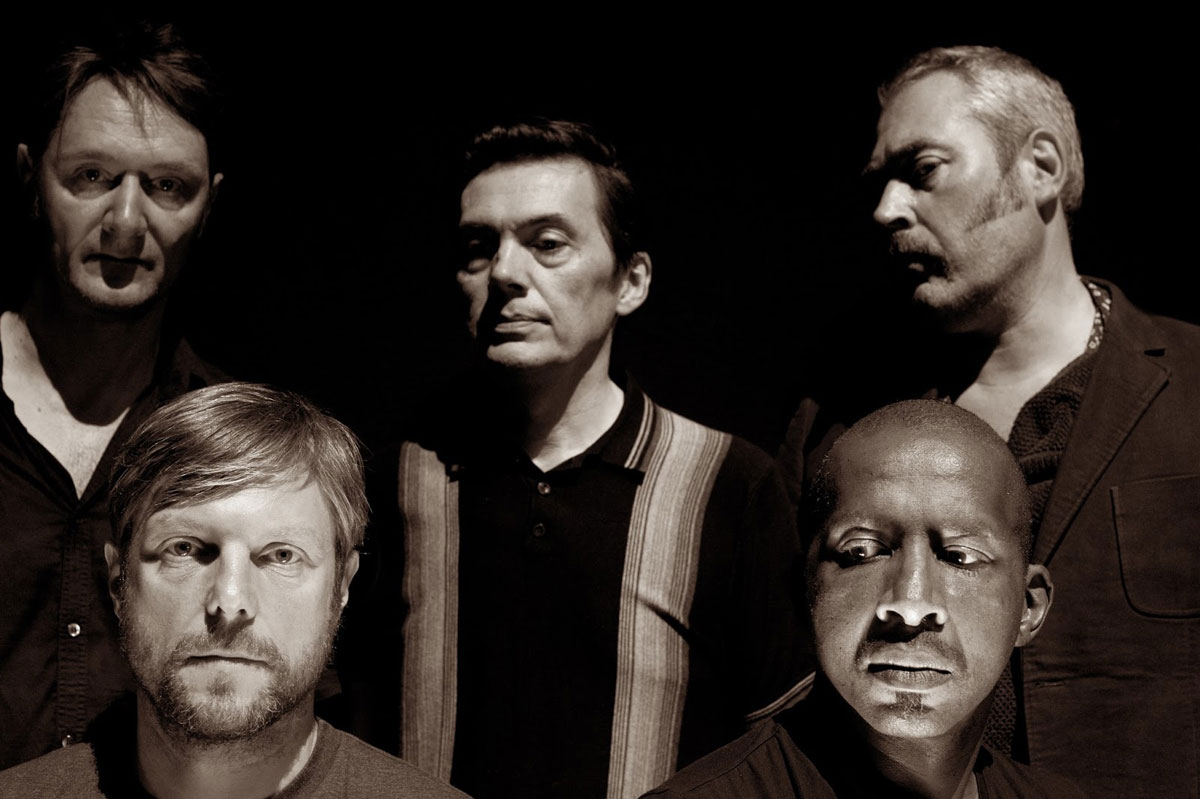 It’s often the case that the most appealing bands and musicians are those which create a palette for themselves and consistently toy with it; never straying too far from their comfort zone but always pushing the envelope enough to brandish progression as an ingredient ingrained in them. Nottingham, UK five-piece Tindersticks are one such band. No matter the twists and turns they’ve taken in their music, their spines have always been informed by a dark, smooth, and soulful sensibility that lingers in the atmosphere on works like Ypres, their crushingly sad soundtrack to an exhibition commemorating WW1 in the Belgian town of the same name, or Across Six Leap Years, an in-studio live re-imagine of songs from their back catalogue.
It’s often the case that the most appealing bands and musicians are those which create a palette for themselves and consistently toy with it; never straying too far from their comfort zone but always pushing the envelope enough to brandish progression as an ingredient ingrained in them. Nottingham, UK five-piece Tindersticks are one such band. No matter the twists and turns they’ve taken in their music, their spines have always been informed by a dark, smooth, and soulful sensibility that lingers in the atmosphere on works like Ypres, their crushingly sad soundtrack to an exhibition commemorating WW1 in the Belgian town of the same name, or Across Six Leap Years, an in-studio live re-imagine of songs from their back catalogue.
This underlying sense of forward-thinking mischief lays itself at the base of new full-length The Waiting Room as well. Though it might quite not have the mesmeric, somewhat magical atmosphere of Curtains or their second self-titled album, their artfulness is embellished by the fact that once again, this feels like a transmission from an idyllic corner of rural England; a cold, wind-swept winter night spent in by a fire with a bottle of wine with only frontman Stuart A. Staples’ regrets and ruminations as company.

The spirituality of the instrumentation is as much a calling card here as it’s always been. Tindersticks’ favoured trick of loaded, sumptuous pathos is toyed with, and although it means there’s not so much flow here as their classic work, it hardly matters when The Waiting Room delivers moments as refreshing as “Second Chance Man,” which starts from skeletal beginnings and moves in to swelling, harmonised brass flourishes. The down-tuned slap-bass funk of “Were We Once Lovers?” is refreshingly energised, complete with rising, trippy synth loops and shadowy reverb on Staples’ voice as he ponders “Did I take your number? Did I call? Did we spend our lives together?”

 “Hey Lucinda” is a smooth and sensual crawl that waltz’s its way through a childlike sense of both nostalgia and romance bound by time, Staples urging his muse to come out drinking with him before the summer ends. The accompanying female vocals provide the counter-argument in the grasp of a classic pop trope, but done in Tindersticks’ characteristic style. Staples forlorn, spoken word story-telling over the gorgeous instrumentation of “How He Entered” finds him mysteriously depicting his quest to almost re-discover himself in the wake of loss and heartbreak, and the barely there, quivering keyboard chords of the title track provide the perfect foundations for his lonesome gambit on the title track as he begs “don’t let me suffer”.
“Hey Lucinda” is a smooth and sensual crawl that waltz’s its way through a childlike sense of both nostalgia and romance bound by time, Staples urging his muse to come out drinking with him before the summer ends. The accompanying female vocals provide the counter-argument in the grasp of a classic pop trope, but done in Tindersticks’ characteristic style. Staples forlorn, spoken word story-telling over the gorgeous instrumentation of “How He Entered” finds him mysteriously depicting his quest to almost re-discover himself in the wake of loss and heartbreak, and the barely there, quivering keyboard chords of the title track provide the perfect foundations for his lonesome gambit on the title track as he begs “don’t let me suffer”.
There aren’t a great deal of bands that “business as usual” would be a compliment for, but then there aren’t a great deal of bands for whom “business as usual” means refreshment, innovation and an almost novelistic approach to soul-searching. The Waiting Room has power enough o ponder the question as to whether Tindersticks will ever totally run out of ideas.
Rating: 4/5


